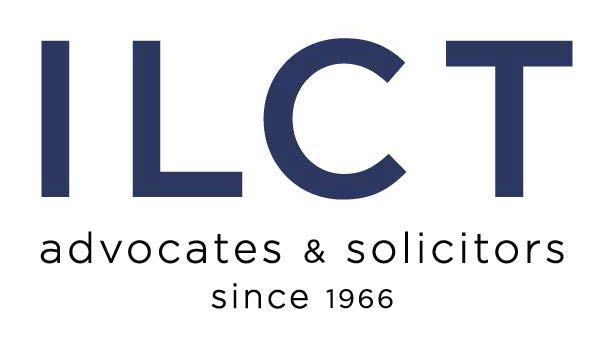What is copyright?
Copyright is a type of Intellectual Property (IP) asset, copyright refers to “artistic creation, artistic work or artistic expression”. Copyright work must be in a tangible form of expression, these are such as: photograph, art, music, poetry, novel, film, design or website content etc. Software can also be protected as computer program under copyright as well, but be aware that in some jurisdictions, software can also be protected as a patent (we will discuss patents in the next chapter).
Ownership Rights
In most instances, the author is the owner of the copyright work. When there are two or more authors, the copyright work is considered as jointly created. There is also a concept of “works made for hire” meaning that the author created the copyright work during a term of work for hire agreement. In this case, the copyright work will be considered as belonging to the commissioner. An example can be seen from 2 releases of “Love Story” by Taylor Swift, in which the 2008 version was recorded during her contract, thus, the copyright of this version is owned by a music company. Whereas, the 2021 version was recorded by Taylor Swift herself, making her the copyright owner of this version.
As the owner of copyright work, you will be entitled to rights such as:
- Reproduction of the work
- Creation of derivative works (in the case of film, prequel, sequel or spin-off)
- Distribution or public sale of the work
- Display or performance of the work (in the case of art, music or film)
- Rental of the original or the copies of a computer program, an audiovisual work, a cinematographic work and a sound recording.
Not only that, copyright owner can also grant license to another party for using his/her copyright work, as well as, able to gain royalty through this method. Any use of copyright work without the owner’s authorization will be considered as “copyright infringement” and punishable under the law.
Copyright Protection
In general, copyright work is automatically protected upon the creation date, in which is the first date where the author completed the work. There is also a publication date, in which is the first date where the work is publicly published by means of distribution of replicated copies of a work with the author’s consent, where such replicated copies are made available to the public in a reasonable quantity. These two dates are important when keeping record of the copyright work.
Although copyright registration/recordal is not mandatory and copyright work is automatically protected upon creation, it is still recommended that the author appropriately records the work with the respective offices. By recording the copyright work, the author will be equipped with the documentary evidence issued by the government authority (i.e. Certificate of Copyright Recordal) which is useful to strengthen the case when it comes to copyright enforcement against any unauthorized uses.
Copyright Fair Use
In most circumstances, the author or owner hold all legal rights to use the copyright work and any parties wishing to use the same work must first obtain authorization from the owner. With this being said, there is an exception to this, where another party is permitted to use the copyright work without first obtaining authorization from the author or owner, this is called “copyright fair use”.
Fair use is a legal doctrine that promotes the freedom-of-expression, thus allowing any parties to use copyright work without fearing legal implications. Most importantly, copyright fair use must be transformative in nature (i.e. not just copying the original). In order to qualify for fair use, there are four criteria that must be considered, these are explained below.
1). The purpose of the use
The first criterion is how the copyright work is used and whether the use is for a commercial purpose. For instance, usage of copyright work in a non-profit educational video is likely to be considered as a fair use. Whereas, using the same copyright work in a for-profit commercial video is unlikely to be a fair use. Unauthorized use of copyright work for a commercial purpose is a serious offense in most countries.
2). The nature of the use
Second criterion is for determining what type of copyright work is used. For example, using fictional work (e.g. novel or poem) is less likely to be considered as fair use if compared to using non-fiction work (e.g. biography, travel writing, news article). This generally involves the creativity level of the original copyright work, the higher the creativity level of the work, the more likely for that that work to be seen as “unique”. Unique work is likely to be individualized to the author, thus unlikely to be accepted as a fair use.
Moreover, whether the original copyright work is published or unpublished is also another important consideration in this criterion. It is unlikely to be a fair use if the work is taken from unpublished source.
3). The amount of the use
The third criterion examined the portion taken from the original copyright work and how much was used. For a song, if a large portion of the lyrics were used, it is unlikely to be seen as a copyright fair use. In general consensus, a small portion taken from the original work is usually considered as being acceptable as a fair use. However, in some cases, copying the small portion which is the “heart” of the song will not be considered as a copyright fair use.
4). The impact of the use
The last criterion is the consideration whether the work has any impact on the original work. For instance, does it have an impact on the market share of the original copyright work? If a new song was written based on the original work, does the new song belong in the same genre or would it affect the audience of the original work by decreasing the sale of the original work and so on.
In conclusion, copyright is an important tool in protecting artistic creations, as well as, promoting further creative expressions. It is beneficial if author understands the basic concept of the copyright law so that he/she may utilize the copyright work to its fullest potential.
In this social media dominated world, copyright infringement has become very widespread with many not knowingly breaking the law. Thus, it is important that all grasp the basic concept of copyright to avoid any legal implications. For further assistance regarding copyright, please contact: ipgroup@ilct.co.th.











